Latest News
UNAMA reveals 11,002 civilian casualties in 2015

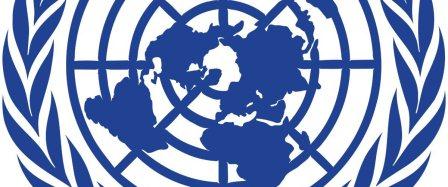 The number of civilian casualties in Afghanistan during 2015 are the highest recorded, the UN said today on the release of its 2015 Annual Report on Protection of Civilians in Armed Conflict.
The number of civilian casualties in Afghanistan during 2015 are the highest recorded, the UN said today on the release of its 2015 Annual Report on Protection of Civilians in Armed Conflict.
The annual report, produced by the United Nations Assistance Mission in Afghanistan (UNAMA) in coordination with the UN Human Rights Office, shows that increased ground fighting in and around populated areas, along with suicide and other attacks in major cities, were the main causes of conflict-related civilian deaths and injuries in 2015.
“This report records yet another rise in the number of civilians hurt or killed. The harm done to civilians is totally unacceptable,” said Nicholas Haysom, the Secretary-General’s Special Representative for Afghanistan and head of UNAMA. “We call on those inflicting this pain on the people of Afghanistan to take concrete action to protect civilians and put a stop to the killing and maiming of civilians in 2016.”
UNAMA documented 11,002 civilian casualties (3,545 deaths and 7,457 injured) in 2015, exceeding the previous record levels of civilian casualties that occurred in 2014. The latest figures show an overall increase of four percent during 2015 in total civilian casualties from the previous year. UNAMA began its systematic documentation of civilian casualties in 2009.
Ground engagements between parties to the conflict caused the highest number of total civilian casualties (fatalities and injuries), followed by improvised explosive devices (IEDs) and suicide and complex attacks. Ground engagements caused the most fatalities amongst civilians, followed by targeted and deliberate killings.
“The people of Afghanistan continue to suffer brutal and unprincipled attacks that are forbidden under international law,” said the UN High Commissioner for Human Rights, Zeid Ra’ad Al Hussein. “This is happening with almost complete impunity. The perpetrators of the violations, documented by UNAMA and my staff, must be held to account. And the international community should emphasise far more vigorously that the rights of civilians should be protected.”
Anti-Government Elements continued to cause the most harm – 62 per cent of all civilian casualties – despite a 10 per cent reduction from 2014 in the total civilian casualties resulting from their attacks. Notwithstanding the overall decrease, the report documents Anti-Government Elements increasing use of some tactics that deliberately or indiscriminately cause civilian harm, including targeted killings of civilians, complex and suicide attacks, as well as indiscriminate and illegal pressure-plate IEDs. In addition this reduction of Anti-Government Elements caused casualties must be considered in the light of the increase in unattributed casualties.
Civilian deaths and injuries caused by Pro-Government Forces caused 17 per cent of civilian casualties – 14 per cent from Afghan security forces, two per cent from international military forces, and one per cent from pro-Government armed groups. The report documents increased civilian casualties caused by Pro-Government Forces, including during ground engagements, aerial operations, and the activities of pro-Government armed groups.
Fighting between the parties to the conflict, which could not be attributed to one specific party, caused 17 per cent of civilian casualties. Unattributed explosive remnants of war caused four per cent and cross-border shelling from Pakistan into Afghanistan caused less than half of one per cent.
Ground engagements between parties to the conflict caused 4,137 civilian casualties (1,116 deaths and 3,021 injured) – a 15 per cent increase from 2014 – and the leading cause of civilian casualties in Afghanistan. Improvised explosive devices caused 2,368 civilian casualties (713 deaths and 1,655 injured). While this represents a 20 per cent decrease it is still the second leading cause of civilian casualties in Afghanistan.
In 2015, UNAMA documented a 37 per cent increase in women casualties and a 14 per cent increase in child casualties.
“In 2015, the conflict caused extreme harm to the civilian population, with particularly appalling consequences for children. Unprecedented numbers of children were needlessly killed and injured last year – one in four casualties in 2015 was a child,” said Danielle Bell, UNAMA Director of Human Rights. “Other children suffered the loss of parents, and increasingly their mothers, sisters, and female role models – one in 10 casualties was a woman.”
The report outlines key steps to be taken by parties to the conflict to mitigate casualties and protect civilians from harm, including the following:
Anti-Government Elements:
- Cease the deliberate targeting of civilians and civilian locations, in particular, journalists, human rights defenders, judges and prosecutors, civilian Government officers, aid workers, and places of worship and culture.
- Cease the use of IEDs in all areas frequented by civilians and stop using illegal pressure-plate IEDs.
- Cease indiscriminate and disproportionate complex and suicide attacks and cease firing mortars, rockets and grenades from and into civilian-populated areas.
- Uphold statements by the Taliban leadership regarding the human rights of women and girls in areas under Taliban influence; cease attacks and threats against girls’ education, teachers and the education sector in general.
Government of Afghanistan:
- Cease the use of mortars, rockets, grenades, other indirect weapons, and aerial attacks in civilian-populated areas.
- Finalize the national policy on civilian casualty mitigation backed by an action plan with concrete objectives to prevent civilian casualties in the conduct of hostilities.
- Immediately disband and disarm all armed groups, militias and ‘national uprising movements’.
- Investigate all allegations of violations of international humanitarian and human rights law and human rights abuses by Afghan national security forces and pro-Government armed groups.
- Ensure that victims of violations have an effective remedy; strengthen procedures for compensation to women and families of civilians killed and injured in conflict-related violence.
International Military Forces:
- Conduct an independent, impartial, transparent and effective investigation of the attack against the MSF hospital and make the findings public. Ensure accountability for those responsible.
- Review current targeting protocols, operational policies and pre-engagement targeting criteria to prevent attacks against civilian locations, including hospitals.
- Support the Government of Afghanistan to develop and implement a national policy on civilian casualty mitigation in the conduct of hostilities.

Latest News
US understands importance of Chabahar Port for Afghanistan: India
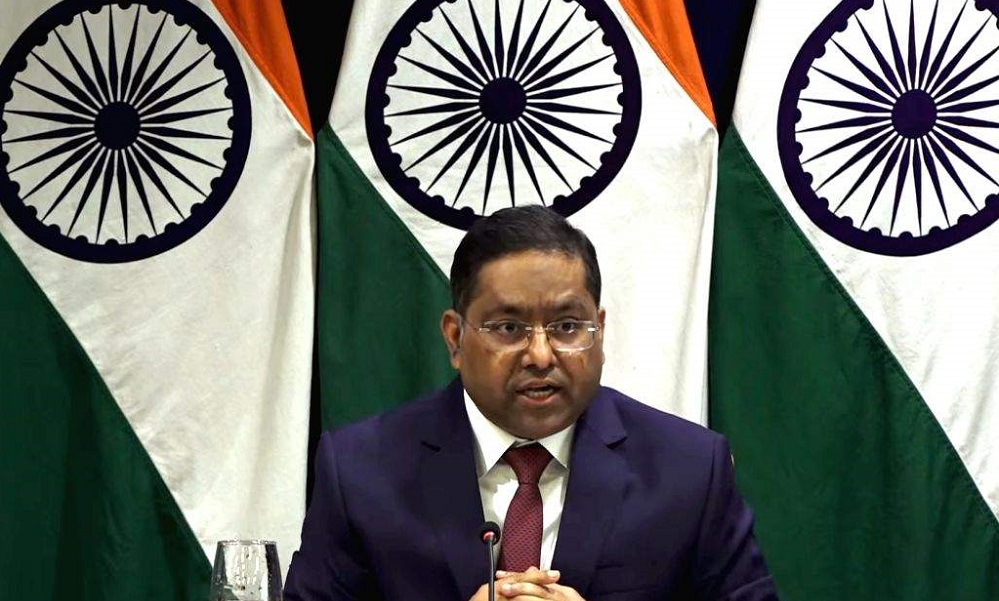
The United States understands the importance of Chabahar Port for continued humanitarian supplies to Afghanistan and to provide the country economic alternatives, India’s foreign ministry said on Friday.
India recently signed a 10-year agreement to develop and operate Iran’s strategic Chabahar Port as New Delhi aims to boost trade ties with landlocked Afghanistan and Central Asian countries, bypassing ports in its western neighbour and arch foe Pakistan.
But the deal has prompted a thinly veiled threat of sanctions from the United States, with whom India has developed close economic and military ties in recent decades.
India’s foreign ministry spokesman, Randhir Jaiswal, noted that since 2018, India has supplied 85,000 metric tons of wheat, 200 metric tons of pulses and 40,000 litres of pesticide Malathion to Afghanistan through Chabahar Port.
“The United States also has an understanding…understands the importance of Chabahar Port for continued humanitarian supplies to Afghanistan and to provide Afghanistan economic alternatives,” he said in a press conference.
“Our External Affairs Minister also spoke on this matter in several forums recently, where he said that we should not take a narrow view of this particular project, it has an important role to play as far as the region is concerned, connectivity is concerned, particularly for the landlocked countries in the area,” he added.
He also said that Russia‘s special envoy to Afghanistan, Zamir Kabulov, met with an Indian delegation led by Joint Secretary, J.P. Singh, who looks after Pakistan, Afghanistan, Iran, in the Ministry of External Affairs, essentially exchange of views on the ground and the situation and how the two countries look at the situation.
He said that they emphasized on the need to provide development assistance and humanitarian support to the people of Afghanistan.
Latest News
Nicaragua president sends letter of condolence to IEA leader after floods

The Afghan Embassy in China announced Saturday that the President of Nicaragua has sent a letter of condolence to the leader of the Islamic Emirate, Mawlawi Hebatullah Akhundzada, following the recent deadly floods in Afghanistan.
Based on the embassy’s statement, the letter was handed over by Michael Campbell, the Nicaraguan ambassador to China, to Bilal Karimi, the Afghan ambassador to China.
In the letter, Nicaragua president, Daniel Ortega, while expressing his sympathy over the floods, expressed his interest in establishing good relations with the Islamic Emirate and cooperation in various fields.
The Nicaraguan ambassador stated that the Nicaraguan people, like the Afghans, achieved independence after a hard struggle against the colonialists, which is a common point between the two countries.
Meanwhile, Bilal Karimi, Afghanistan’s ambassador to China, has said that he will convey the condolence letter of the President of Nicaragua to the leader of the Islamic Emirate. He also assured of maintaining good relations with the country.
Karimi emphasized that all Latin American countries are important, but Nicaragua’s taking the initiative is a positive and admirable move.
Latest News
UN Doha meeting should reflect realities of Afghanistan: Iranian envoy
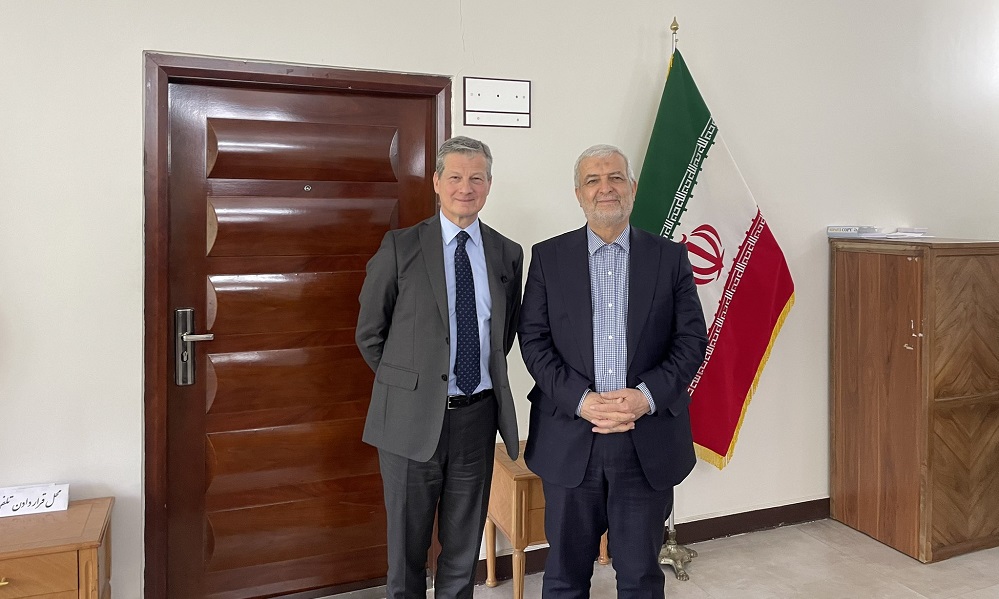
Iran’s special representative for Afghanistan, Hassan Kazemi Qomi, said in a meeting with his Italian counterpart that the next UN-convened meeting on Afghanistan should reflect the realities of the country.
Qomi said that Tehran is ready to work with Europe on the development of a comprehensive cooperation plan for Afghanistan based on the consultations it has conducted.
He added that the topics of the third meeting of special envoys on Afghanistan in Doha should be based on the realities of the region and Afghanistan.
“The actions of countries outside the region have not been useful in solving the crisis and challenges of Afghanistan so far, and if this situation continues, Europe will also be plagued by the problems,” he said.
The last meeting of the United Nations on Afghanistan was held in Doha in February this year, but it failed to achieve its primary objectives.
-

 Climate Change4 days ago
Climate Change4 days agoSummer 2023 was the hottest in 2,000 years, study says
-

 World5 days ago
World5 days agoBlinken arrives in Ukraine in show of US solidarity amid Russian attacks
-
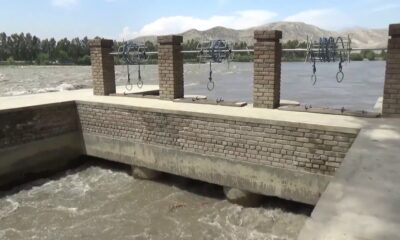
 Latest News4 days ago
Latest News4 days agoNakamura canal project completed in Nangarhar
-
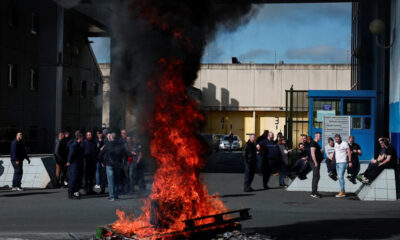
 World4 days ago
World4 days agoManhunt underway after gunmen ambush French prison van to free drug dealer
-
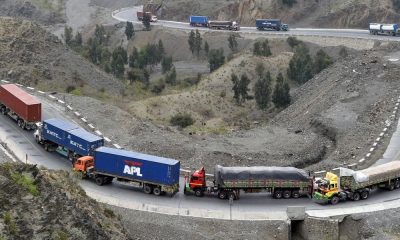
 Business4 days ago
Business4 days agoAfghanistan’s imports and exports totaled $10.3 billion last year
-

 Sport4 days ago
Sport4 days agoStubbs gives Delhi IPL play-off hope with win in last league match
-

 Latest News5 days ago
Latest News5 days agoActing health minister visits flood-stricken villages in Baghlan
-
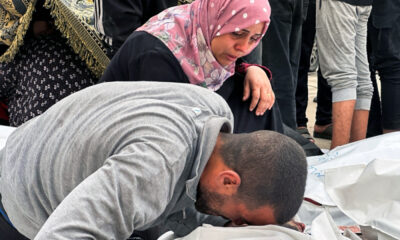
 Regional5 days ago
Regional5 days agoUN says Gaza death toll still over 35,000 but not all bodies identified














